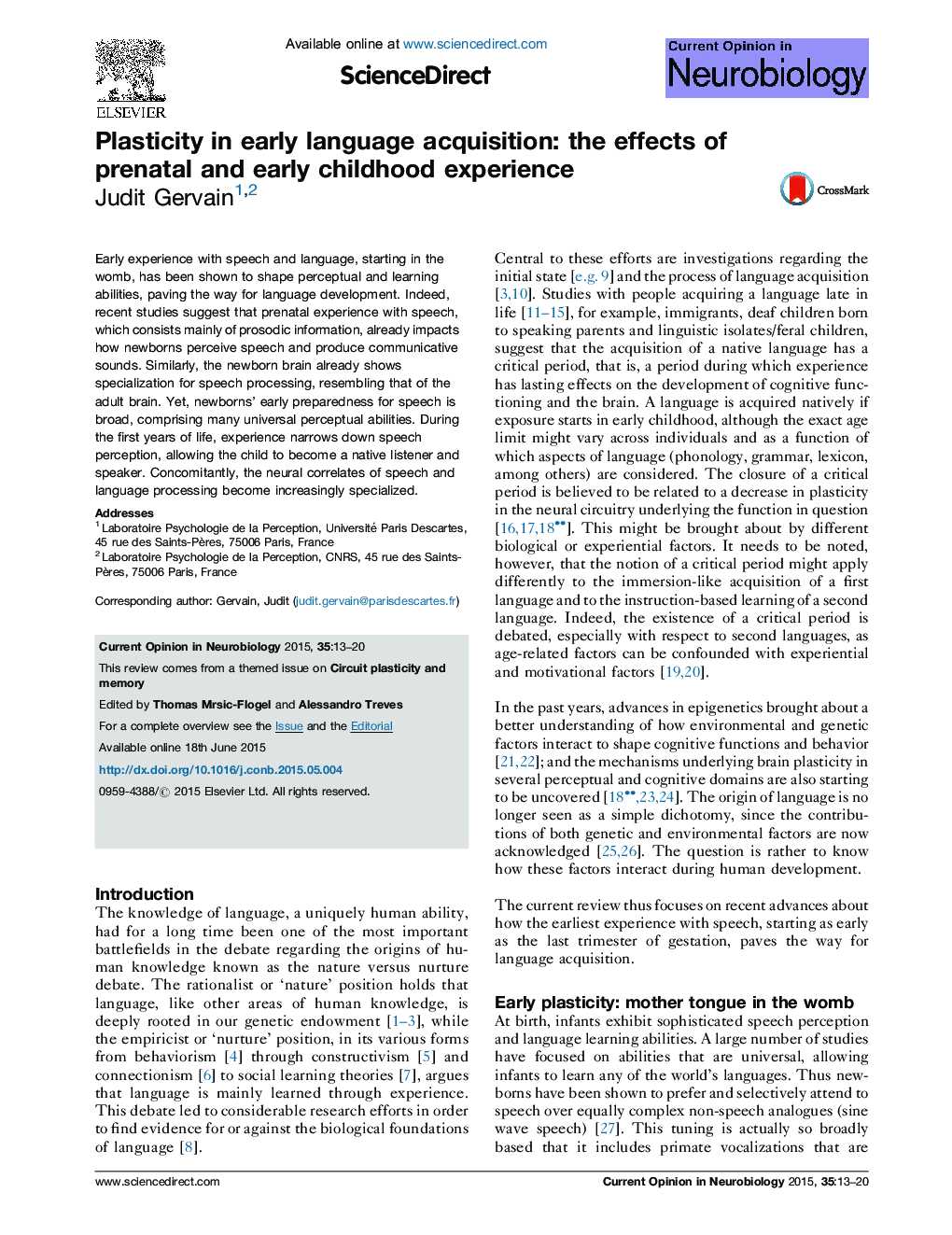| Article ID | Journal | Published Year | Pages | File Type |
|---|---|---|---|---|
| 6266348 | Current Opinion in Neurobiology | 2015 | 8 Pages |
â¢Language development is no longer viewed from a dichotomous nature versus nurture perspective.â¢Biological and experiential factors are now increasingly recognized to interact.â¢Prenatal experience with speech already starts shaping perceptual and learning abilities.â¢Factors behind the critical period attunement to the native language are starting to be understood.
Early experience with speech and language, starting in the womb, has been shown to shape perceptual and learning abilities, paving the way for language development. Indeed, recent studies suggest that prenatal experience with speech, which consists mainly of prosodic information, already impacts how newborns perceive speech and produce communicative sounds. Similarly, the newborn brain already shows specialization for speech processing, resembling that of the adult brain. Yet, newborns' early preparedness for speech is broad, comprising many universal perceptual abilities. During the first years of life, experience narrows down speech perception, allowing the child to become a native listener and speaker. Concomitantly, the neural correlates of speech and language processing become increasingly specialized.
